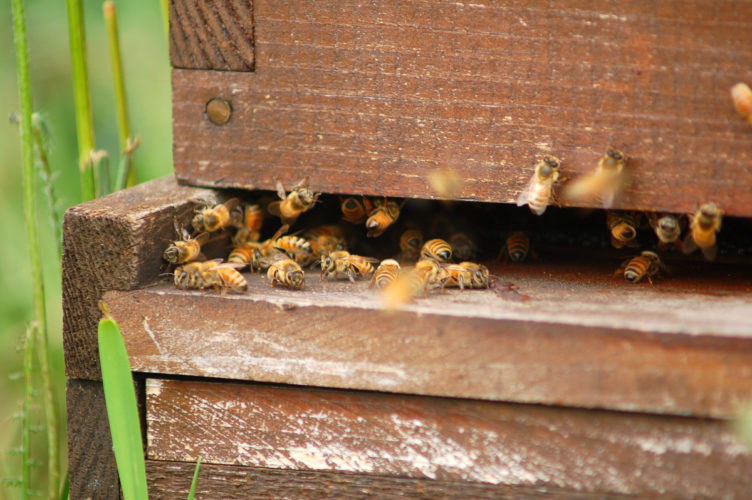This data was revealed to the staff of RADIOMOTO.NET on May 20, 2022 in the city of Goma, DRC by the coordinator of the Centre managériale pour le développement intégral (CEMADI), Engineer Alphonse Kighoma. This was on the occasion of the celebration of World Bee Day.
“We have lost four beekeepers, shot in the middle of their activity. We have lost large quantities of honey, over 500 kilograms. We have recorded 127 burnt hives and 81 hives destroyed in a malicious manner. The perpetrators were illegal arms carriers. These losses were recorded in the Beni region, in the Bashu chiefdom, in Ruwenzori and in all the other territories of the province of North Kivu, and this throughout the year because of the insecurity. In terms of equipment, we have lost more than 8,000 US dollars, as recognised by the local authorities after the investigations. The lost honey is worth more than 2345 US dollars. The family of beekeepers has therefore lost more than 10,665 US dollars. In terms of bees, we have lost over 31,200,000 bees burnt, wickedly destroyed by ill-intentioned people on the one hand and by the misuse of chemical pesticides on the other. And this has had very serious consequences on the ecosystem. Because as you know, plants depend on bees for more than 85% of their production, especially in the process of pollination,” he explained.
He also said that a good number of beekeepers have been forced to migrate to safe areas, thus abandoning their production basins, which are the bee’s natural habitats.
Alphonse Kighoma continued, “We ask the authorities to guarantee us security in our production areas. We want the authorities to take beekeeping into account in all their concerns and planning. Let them invest in it. That they invest in it with technical support, financial support, even in terms of advice, but also in terms of legal security.”
To this end, he called for new laws to protect bees and beekeepers. Without these laws, he says that beekeepers in North Kivu are working in a scattered manner and this is blocking their progress.
Yet, Congolese honey and in particular that of the northern part of the province was ranked third best in terms of quality, during the International Fair on African Beekeeping, held in Abouja, Nigeria in 2018. Hence, the need to get organized to keep this competitiveness which constitutes the most value for beekeeping in the region.
John Tsongo Thavugha
Photo: Bees in a hive. Credit: Sean Winters.


Comments are closed, but trackbacks and pingbacks are open.